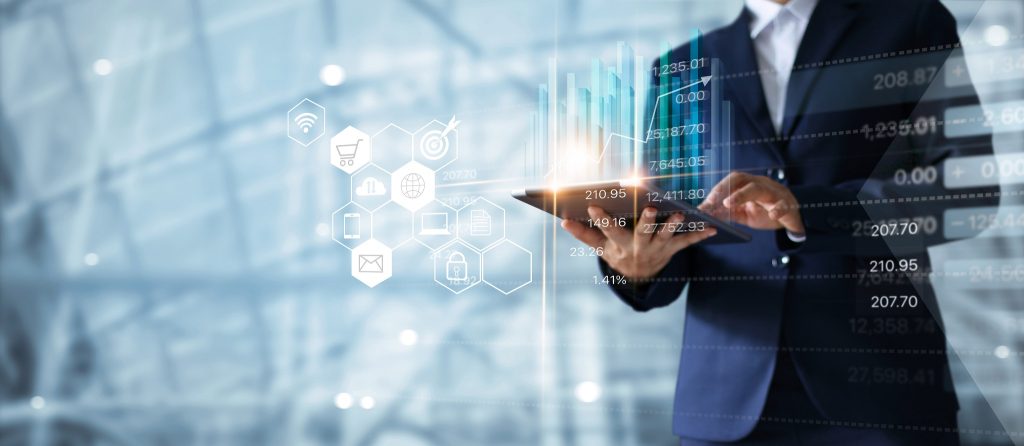Introduction
The Internet of Things (IoT) has rapidly evolved from a conceptual idea to a transformative reality, connecting devices and revolutionizing industries. As we stand on the brink of a new era, the future of IoT holds immense potential to reshape how we interact with technology and the world around us. In this blog post, we’ll delve into the exciting landscape of the IoT’s future, exploring potential developments and emerging trends that will shape the way we live, work, and innovate.

The Future of the Internet of Things
Edge Computing and AI Integration
As IoT devices continue to proliferate, the volume of data generated is overwhelming traditional centralized cloud systems. Edge computing, which processes data closer to its source, is set to play a crucial role in the IoT’s future. By reducing latency and improving real-time responsiveness, edge computing enables quicker decision-making, especially in critical applications like autonomous vehicles and industrial automation. Combining edge computing with artificial intelligence (AI) will further enhance the ability to analyze data on the spot, empowering IoT devices to make intelligent decisions independently.
5G Connectivity and Faster Networks
The rollout of 5G networks is a game-changer for IoT. With significantly faster speeds, lower latency, and the ability to connect a massive number of devices simultaneously, 5G unlocks new opportunities for IoT applications. From smart cities and remote healthcare to augmented reality experiences, 5G’s capabilities will pave the way for innovative solutions that were previously impractical due to network limitations.
Enhanced Data Security and Privacy
As the IoT ecosystem expands, so do concerns about data security and privacy. Future IoT developments will focus on robust security measures to safeguard sensitive data and prevent cyberattacks. Blockchain technology is expected to play a pivotal role in providing secure and transparent data exchanges, ensuring data integrity and enabling users to have greater control over their information.
Sustainability and Energy Efficiency
IoT’s future will see a strong emphasis on sustainability. IoT devices are poised to revolutionize resource management, enabling efficient energy consumption, waste reduction, and environmental monitoring. Smart cities will use IoT to optimize energy grids, reduce traffic congestion, and enhance waste management, leading to more sustainable urban living.
Cross-Domain Integration
The IoT’s potential extends beyond individual industries. Cross-domain integration will become a hallmark of its future. Interconnected systems will allow data to flow seamlessly between sectors, enabling innovative solutions. For example, smart transportation systems will collaborate with energy grids to optimize charging stations and minimize environmental impact.
Human-Machine Interaction Evolution
Natural language processing and voice recognition will evolve, enabling more intuitive human-machine interactions. Smart homes, virtual assistants, and self-driving cars will become even more integrated into our daily lives, responding seamlessly to voice commands and gestures.
Conclusion
The future of the Internet of Things promises a world of endless possibilities. As we venture into this exciting era, the convergence of technologies like AI, 5G, and edge computing will reshape industries and revolutionize how we interact with our surroundings. With enhanced data security, sustainability, and cross-domain integration, the IoT’s potential to transform lives and industries is immense. Buckle up for a future where innovation knows no bounds, and the Internet of Things becomes an integral part of our connected world.



